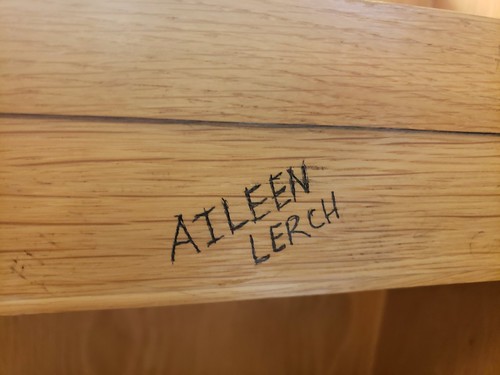Jack Smith’s Subtle Shot at Trump Mar-a-Lago Judge Aileen Cannon
Aileen #Aileen

Faced with a federal judge in the Donald Trump Mar-a-Lago classified documents case who keeps making bizarre rulings clearly favoring the man who appointed her, federal prosecutors have resorted to citing case law that Aileen Cannon should know for one major reason: She worked on it herself.
Department of Justice special prosecutor Jack Smith fired off a quiet shot across the bow at Cannon in a recent court filing—a filing that seeks to block Trump’s latest ploy to morph this criminal case into some kind of wild goose chase against the Biden administration.
Although the Trump team has already received 1.3 million pages of evidence, the former president’s defense lawyers are trying to bolster their client’s conspiracy-laden claims that this investigation is just a White House-led “selective prosecution.” In search of “political bias,” they’ve asked Cannon to force the DOJ to turn over all kinds of documents—under the guise of so-called “Brady rules,” which require the government to disclose exculpatory information to a person charged with a crime.
In short, it’s a fishing expedition to delay the trial. And, as it happens, Cannon herself worked on a case that established some clear restrictions on this kind of legal deep-sea voyage.
Back when she was a federal prosecutor in South Florida, Cannon worked on a case involving a 2015 sting operation that caught two men who planned to rob a fake stash house of half a million dollars of cocaine, showing up with two AK-47s in their pickup truck. One of them appealed his conviction by claiming he was subject to an unfair “selective prosecution” on the grounds that the vast majority of stash house stings nab Blacks and Hispanics.
Cannon had already been elevated to the bench when her old team won the case in 2021, with the 11th Circuit Court of Appeals pointing to long-established precedent that sets a “demanding burden” to make that kind of claim—particularly when trying to set off a document search for imaginary proof.
By coincidence, the case actually bore Cannon’s name. One of the men caught in the sting was named Lance Cannon, and the case was dubbed U.S. v. Cannon.
Now that Trump is making a similarly spectacular claim, Smith’s prosecutors have reminded Judge Cannon that her hard-won victory is the very reason she should rule against the former president. Defendants can’t just demand a government document dump by pointing to some flimsy notion of “selective prosecution,” the DOJ argued.
“A request to discover such material is, instead, ‘governed by well-settled and binding precedent in [Armstrong] and [Jordan,]” prosecutors wrote in February, citing the case she worked on by name.
“It’s smart lawyering,” said Robert A. Sanders, a retired Navy JAG captain who now teaches law at the University of New Haven.
It’s also something of a flex.
“She worked on almost no cases. She had very little courtroom experience. To find a case that actually she worked on and that resulted in a published opinion is in itself improbable,” said Catherine Ross, a professor emeritus at George Washington University Law School.
“It’s a brilliant maneuver, and particularly with a judge who had so little trial background,” she said.
Citing past cases is part of a lawyer’s everyday job. When they point to higher court rulings, attorneys do it to explain how the current interpretation of the law guides judges to make certain decisions. Occasionally, lawyers get the opportunity to point to a judge’s own past rulings—a sort of gentle nudge that reminds judges to remain consistent.
But this is different.
The decision to point Cannon to her own case also sends a message—and not one meant for Trump’s lawyers or even the American public paying close attention to the historic case.
Smith’s choice to cite case law that Cannon actually worked could be viewed as a reminder to the judge that she knows better than to side with Trump on this—especially on such a narrow topic as bias-alleging document requests.
“It’s not quite the same as confronting a judge with an opinion they wrote or joined,” Ross said. “I don’t think selective prosecution comes up often. There are very few people who can pass the laugh test on claiming that. I think they have her locked in a pretty tight spot—if she were a normal judge.”
Special prosecutor Jack Smith sits in the courtroom.
Peter Dejong/Reuters
Then again, prosecutors are contending with a judge who has gone out of her way to block, slow down, and frustrate the criminal case against Trump.
Long before he was caught hoarding a vast collection of classified documents that he took home with him from the White House, Trump singled out Cannon as his preferred federal judge in South Florida. When Trump filed his revenge lawsuit against Hillary Clinton at a satellite courthouse where Cannon is the only judge, he was disappointed that another judge landed the case. (The judge ended up excoriating Trump’s lawyers for clearly trying to game the local district’s judicial assignment wheel.)
After the FBI seized boxes at Mar-a-Lago, Trump’s lawyers sued the DOJ to hamper the probe and managed to get Cannon this time around. She used that opportunity to halt agents from reviewing evidence, appointing a referee in faraway Brooklyn to slow down the investigation, and feigning concern about Trump’s privacy that in reality stemmed from a doctor’s note Trump had previously made public as part of a publicity stunt.
It wasn’t until the 11th Circuit ordered her to back off that she relented. But since then, Cannon has consistently delayed a court review of classified records that would have only taken two days, causing a domino effect that has cast a cloud of uncertainty over the timing of Trump’s other upcoming trials in New York and Washington, D.C.
Sanders said the prosecutors’ citation of a case Cannon worked on could be read as a subtle reminder to the judge herself.
“The message is: Remember what you did earlier? And how you got jammed up for it—when you went in a direction no one in the world thought was right? Think about what you’re going to do this time,” Sanders said.
But if that’s the message, Cannon may not be getting it. In her latest move on Thursday, Cannon initially rejected prosecutors’ request to keep secret the identity of government witnesses—only to reverse herself and temporarily halt the measure the next day, after the DOJ special counsel warned about the threat of intimidation.
The judge has yet to rule on the Trump team’s request to greenlight its government dumpster dive, but Trump referenced the issue in a Thursday afternoon post on his Truth Social media network.
“Deranged Jack Smith and his Thugs should immediately drop the totally discredited Documents Hoax against me. A TWO-TIERED SYSTEM OF JUSTICE AND SELECTIVE PROSECUTION!” he posted.
